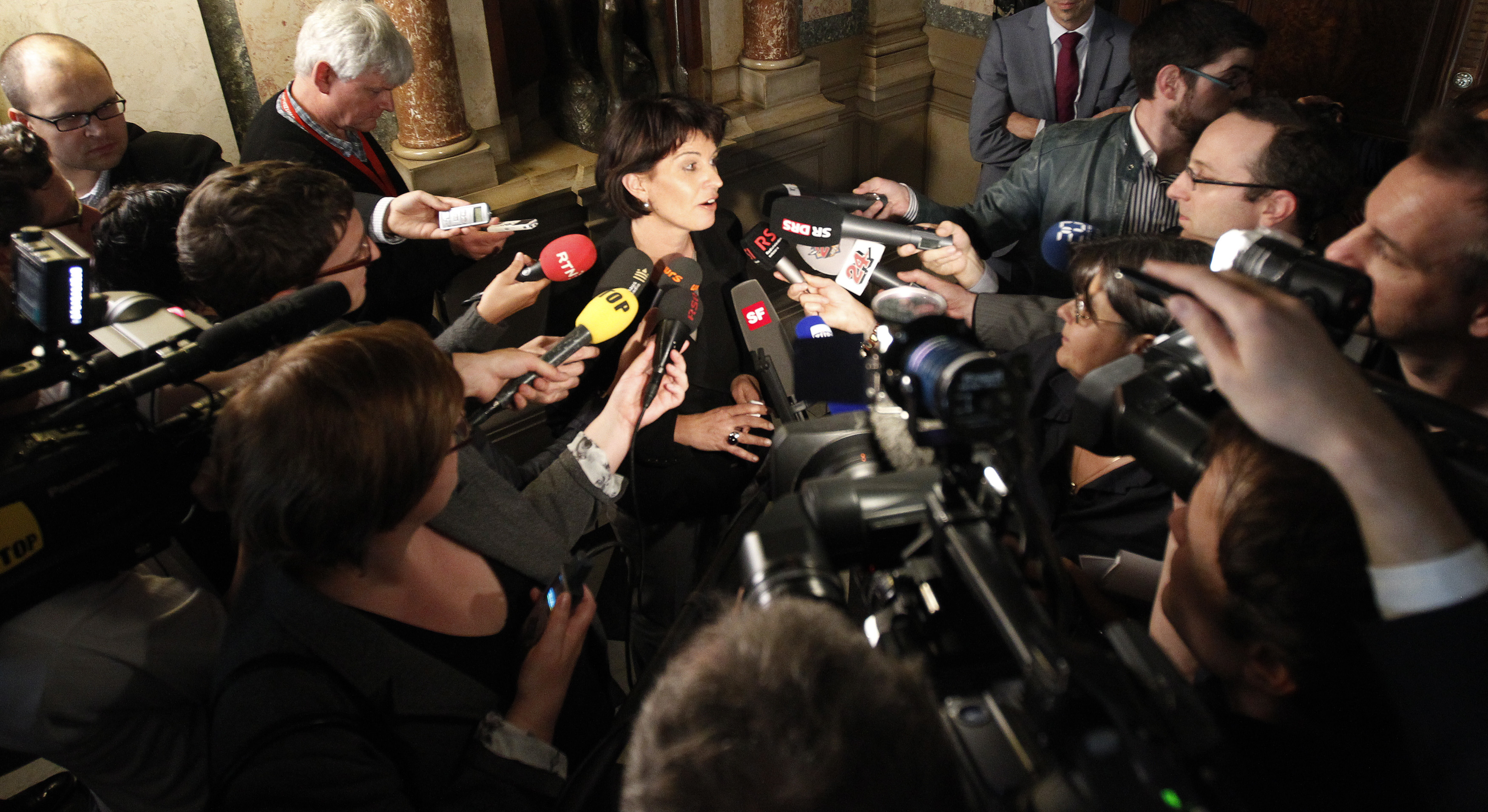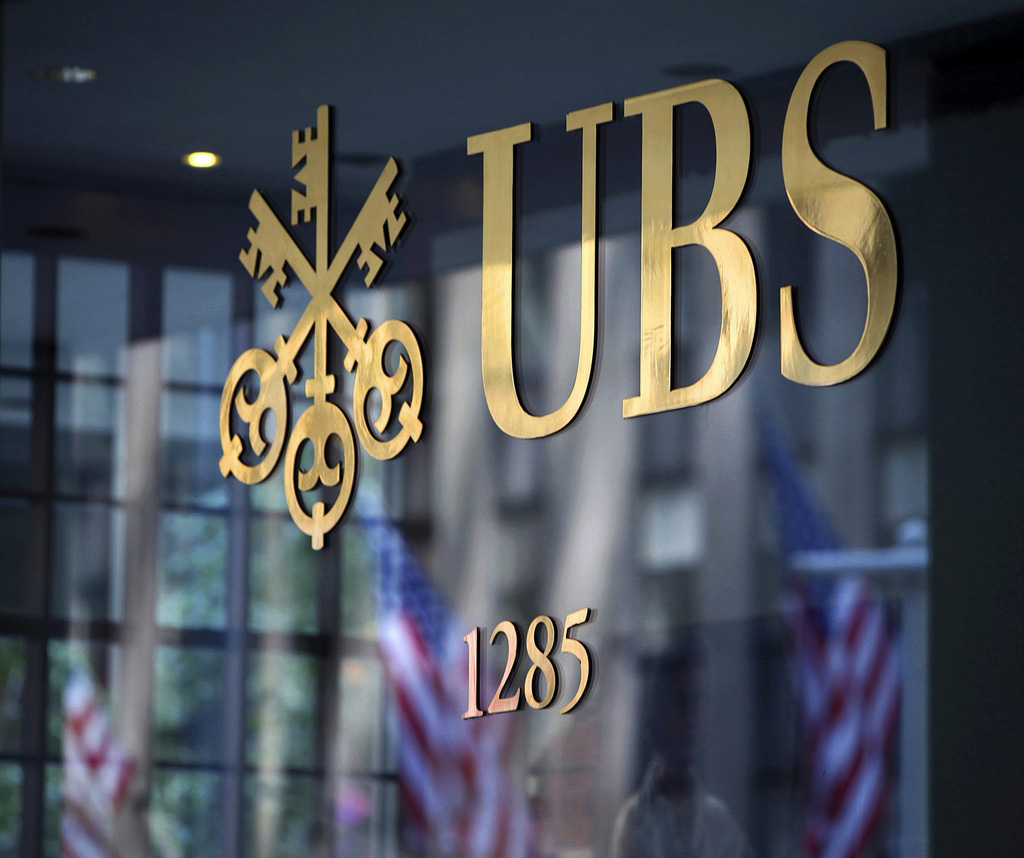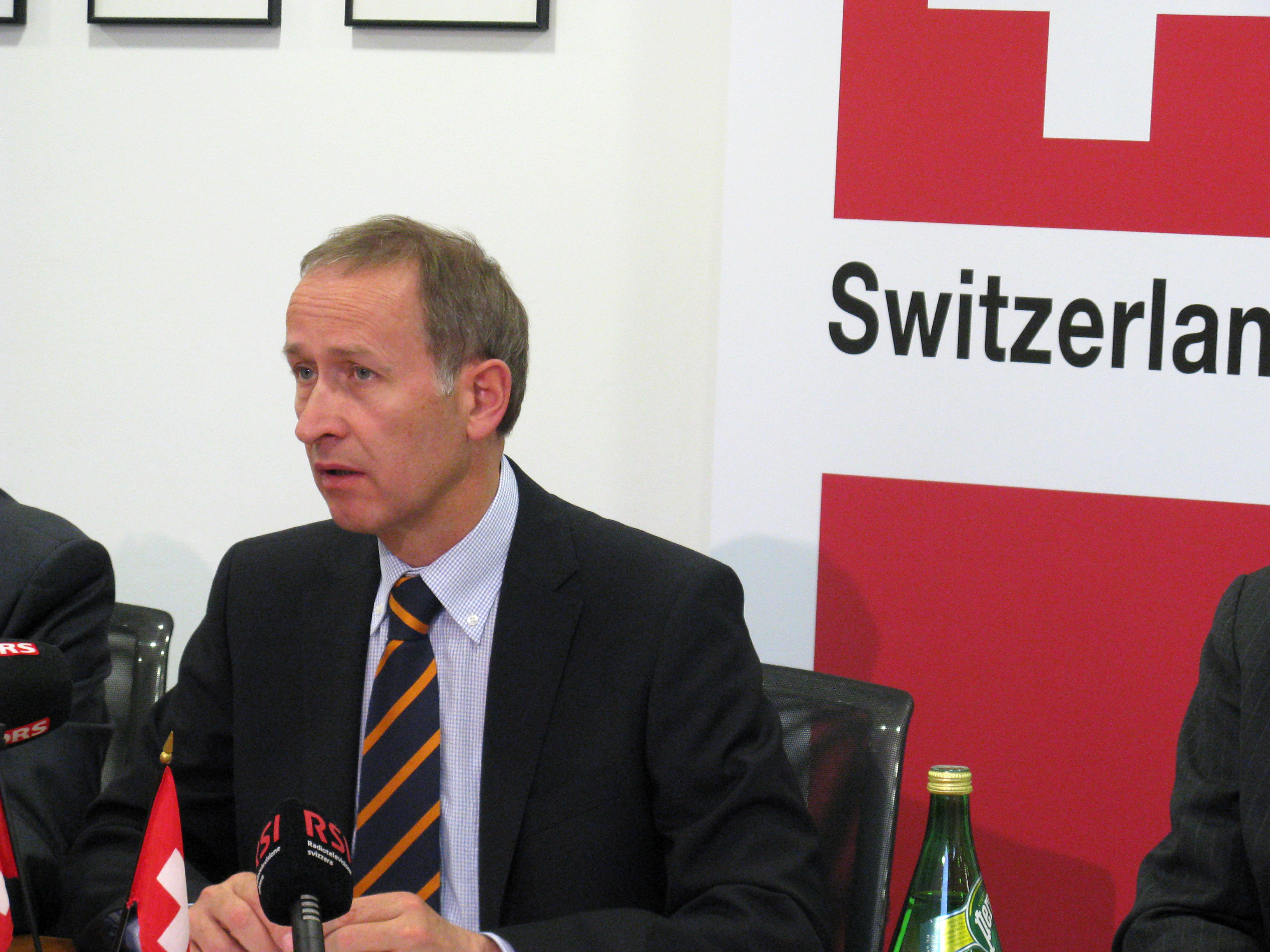
Senate paves way for US to get UBS client data

The Senate has backed a controversial treaty on sharing banking data that was signed last year between the United States and Switzerland.
Senators voted 31-12 on Thursday to approve the deal. They also agreed not to put the issue to a referendum and that the treaty will apply retroactively.
The issue is now expected to go before the House of Representatives on Monday, which is poised to discuss launching a parliamentary investigation into the matter.
“The UBS affair is Switzerland’s affair,” said Simonetta Sommaruga, a senator in the centre-left Social Democratic Party. “We must get out of the UBS rut.”
The Senate had been expected to approve the treaty as it has the backing of the centre-right Radicals and Christian Democrats, the two parties with a majority in the smaller chamber of parliament.
The government said killing the treaty would damage Switzerland’s reputation as a reliable partner that follows through on its commitments.
Drawn up in an effort to protect Swiss bank UBS from crippling legal action by the US tax authorities, the deal signed last August forced the bank to hand over confidential client data by August 20, 2010. The issue came about after allegations that UBS had worked to help rich Americans stash portions of their wealth away from US tax collectors.
But the deal set UBS on a legal collision course at home with Switzerland’s banking secrecy laws, which forbid the handing over of such information. Seeking to save UBS from further grief, the Swiss government produced a workaround by stepping in and upgrading the deal to a state contract subject to parliamentary approval.
The green light is needed from both the Senate and the House of Representatives to approve the contract.
Divisive issue
The deal inked in August 2009 was widely viewed as a first crack in Switzerland’s 75-year-old tradition of banking secrecy.
Under the terms, Switzerland has until August 20 to process a US request for administrative help concerning 4,450 accounts held by US citizens at UBS. The Internal Revenue Service (IRS) believes those accounts could contain taxable but undeclared assets. The Americans originally wanted data on 52,000 accounts.
The ordeal suffered another twist in January, when the Federal Administrative Court ruled that the handing over of confidential UBS client details to US investigators by the Swiss authorities would be illegal.
Under a current treaty in place with the US, Switzerland can help foreign investigators only in cases of tax fraud unless parliament says otherwise. The US request for UBS information was based on tax evasion, which Switzerland did not consider a crime.
A new agreement with the US that does away with the distinction between tax fraud and tax evasion has been signed but not yet put into force.
Political fighting
Ahead of the debate in parliament the issue had divided political parties. The rightwing Swiss People’s Party rejected the deal for months for “castrating banking secrecy” but later did a U-turn saying the deal was “evil” but that rejecting it would be a bigger evil.
The Radicals were also critical and said UBS should be held responsible for the “catastrophe” it created. The Christian Democrats described it as “yet another perversion of the state of law”.
On the other side, the Social Democrats were fundamentally against banking secrecy and said they would vote for the deal as long as there were supporting measures designed to prevent a future crisis with banks that are “too big to fail”.
Senators voted 24-18 not to debate the planning of those measures, which include questions regulating banker bonuses, liquidity and how risks are distributed.
The Senate also decided 32-10 for the treaty to be retroactive. Since the deal only applies to past cases, a vote the other way around would have effectively rendered it useless.
Parliamentary probes
The debate followed the release of a parliamentary report on Monday that said the Swiss government failed in its treatment of UBS and in its leadership during the global financial crisis.
In the report, the parliamentary control committees said the government seemed to have lacked the “most elementary methods of working as a team” during the crisis.
The parliamentary committees are now calling for action that will prevent such crises. This includes written statements on consultations within the government and decisions taken.
In its call for a parliamentary investigation, the People’s Party said the committees’ report did not adequately explain why the names of 285 US customers of UBS had already been handed over to Washington. Nor was there enough information about the August 2009 deal on UBS between Switzerland and the US.
The House of Representatives supported such an investigation on March 18, with 123 votes against 39.
swissinfo.ch and agencies
Bradley Birkenfeld was recruited by UBS in 2001 and resigned in 2005 among concerns about the legality of some of the bank’s activities with certain American accounts and transactions.
He blew the whistle in 2005 and alerted US authorities about the bank’s efforts to allegedly help wealthy Americans hide assets from US tax collectors.
His actions resulted in American justice authorities fining UBS $780 million and forcing the bank to hand over the names of 4,450 wealthy American clients to the Internal Revenue Service, a ruling that conflicts with Switzerland’s tradition of banking secrecy.
Swiss parliamentarians are voting on whether the country should follow through with the agreement. The government says not doing so would greatly damage Switzerland’s reputation as a state that carries out its commitments, while some political parties want to use the issue to force financial sector reforms, particularly over banker bonuses and salaries.
In 2009 Birkenfeld was sentenced to jail for not cooperating enough with investigators looking into the case of American UBS client Igor Olenicoff, a real estate developer who filed tax returns that failed to declare his offshore accounts. He asked President Barack Obama for a pardon in April 2010. Investigators have said Birkenfeld’s information has been crucial to mounting their case.
UBS is the world’s number two wealth manager by managed assets and Switzerland’s second largest bank.
It has a workforce of more than 76,000 worldwide, including nearly 30,000 in the US.
In February UBS paid a $780 million fine and gave information on 255 clients after admitting that some of its bank employees had helped US citizens evade taxes.
UBS, which benefited from a multi-billion bailout package by the government, posted a record loss in 2008 and finished 2009 with a net loss of SFr2.74 billion.

In compliance with the JTI standards
More: SWI swissinfo.ch certified by the Journalism Trust Initiative









































You can find an overview of ongoing debates with our journalists here . Please join us!
If you want to start a conversation about a topic raised in this article or want to report factual errors, email us at english@swissinfo.ch.